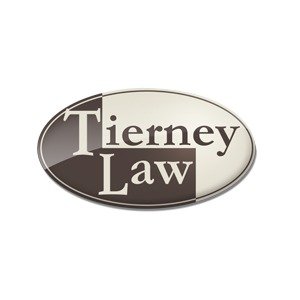Best Domestic Violence Lawyers in Hobart
Share your needs with us, get contacted by law firms.
Free. Takes 2 min.
Free Guide to Hiring a Family Lawyer
List of the best lawyers in Hobart, Australia
About Domestic Violence Law in Hobart, Australia
Domestic violence is a critical issue in Hobart, Australia, as it is across the country. It involves patterns of behavior by one partner to control or dominate the other, often manifesting as physical, emotional, psychological, or financial abuse. Domestic violence laws in Tasmania, where Hobart is located, aim to protect victims and deter offenders. The state government prioritizes the safety and well-being of individuals in domestic relationships and provides legal mechanisms to address and prevent domestic violence.
Why You May Need a Lawyer
Dealing with domestic violence can be overwhelming, and legal assistance is often necessary in various situations. You may need a lawyer to help obtain a restraining order or a Family Violence Order (FVO), represent you in court, navigate the complexities of the legal system, assist in divorce or custody proceedings, or provide advice on available legal rights and protections. A lawyer experienced in domestic violence cases can be instrumental in ensuring that your safety and legal rights are prioritized.
Local Laws Overview
Tasmania has specific laws aimed at preventing domestic violence and protecting victims. The Family Violence Act 2004 defines family violence and provides for Family Violence Orders (FVOs), which restrain alleged perpetrators from further abuse. These orders can include conditions that prohibit the respondent from contacting or approaching the victim. The law also mandates police to take immediate action when instances of domestic violence are reported. Breaches of these orders can result in criminal charges, underscoring the seriousness with which these matters are treated.
Frequently Asked Questions
What is considered domestic violence under Tasmanian law?
Domestic violence includes physical harm, threats, coercive behavior, emotional abuse, and financial control within intimate or family relationships.
How can I obtain a Family Violence Order in Hobart?
You can apply for a Family Violence Order through the Magistrates Court of Tasmania. The police can also apply on your behalf in urgent situations.
What should I do if I am in immediate danger?
If you are in immediate danger, contact the police by calling 000. They can provide immediate assistance and protection.
Will the abuser be arrested when I report domestic violence?
The police assess each situation for criminal behavior and the risk to the victim. If they determine a crime has occurred or you are in danger, they may arrest the abuser.
What happens if the abuser breaches the Family Violence Order?
Breaching a Family Violence Order is a criminal offense, and the police can arrest the offender. They may face significant penalties, including imprisonment.
Can a lawyer help with obtaining emergency housing?
While a lawyer primarily focuses on legal advice, they can connect you with services that provide emergency housing and support.
Are there confidential resources available for victims of domestic violence?
Yes, there are confidential resources, including hotlines and support services, that provide support for those experiencing domestic violence.
How does domestic violence affect divorce proceedings?
Domestic violence can impact decisions regarding property division, child custody, and visitation rights in divorce proceedings.
What legal rights do children have in domestic violence situations?
Children's safety and welfare are paramount, and the court can issue orders to protect them, often considering their best interests in any decision.
Can a domestic violence order be challenged or revoked?
Yes, both the victim or the respondent can apply to vary, extend, or revoke a Family Violence Order. Legal advice should be sought for these processes.
Additional Resources
There are several resources available for individuals affected by domestic violence in Hobart. The Tasmanian Government provides support services and information through initiatives like the Safe at Home program. Local organizations such as the Hobart Women’s Shelter, Engender Equality, and the Sexual Assault Support Service provide specialized assistance. Additionally, the Legal Aid Commission of Tasmania offers legal support and advice for those dealing with domestic violence matters.
Next Steps
If you require legal assistance in domestic violence matters, consider contacting a lawyer specializing in this field. You can reach out to local legal aid organizations, seek referrals from support services, or directly contact law firms with expertise in family and domestic violence law. Preparing documentation and evidence of the abuse will aid your lawyer in providing the most effective support. Remember that your safety is the priority, and numerous organizations in Hobart are dedicated to helping you navigate these challenging situations.
Lawzana helps you find the best lawyers and law firms in Hobart through a curated and pre-screened list of qualified legal professionals. Our platform offers rankings and detailed profiles of attorneys and law firms, allowing you to compare based on practice areas, including Domestic Violence, experience, and client feedback.
Each profile includes a description of the firm's areas of practice, client reviews, team members and partners, year of establishment, spoken languages, office locations, contact information, social media presence, and any published articles or resources. Most firms on our platform speak English and are experienced in both local and international legal matters.
Get a quote from top-rated law firms in Hobart, Australia — quickly, securely, and without unnecessary hassle.
Disclaimer:
The information provided on this page is for general informational purposes only and does not constitute legal advice. While we strive to ensure the accuracy and relevance of the content, legal information may change over time, and interpretations of the law can vary. You should always consult with a qualified legal professional for advice specific to your situation.
We disclaim all liability for actions taken or not taken based on the content of this page. If you believe any information is incorrect or outdated, please contact us, and we will review and update it where appropriate.










